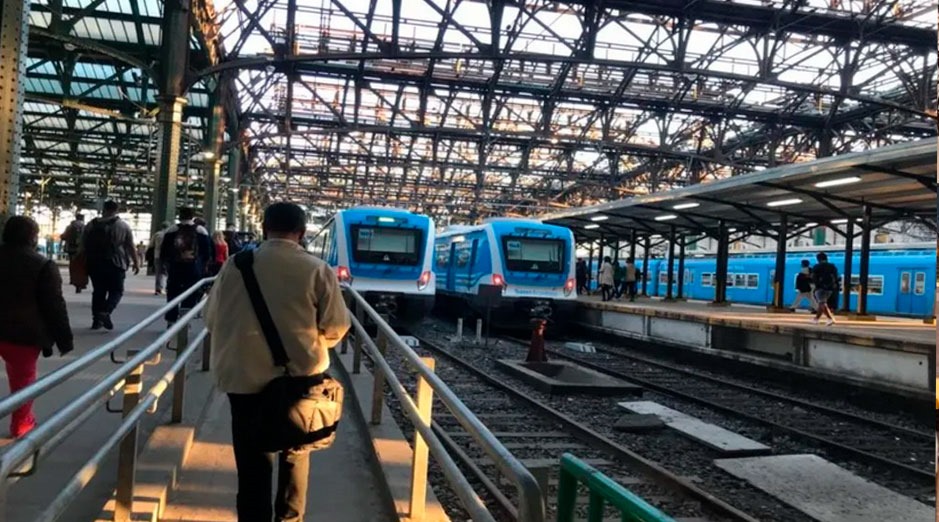
Railroad workers have been denouncing the worsening of the rail service, which is increasingly evident in the metropolitan area of the City of Buenos Aires, where millions make intensive use of the service every week.
In this context, given the publication in the Official Gazette on Thursday, June 13, of two decrees declaring a railway emergency for two years, Those who make up the National Railway Orange Group made their position known in a statement that reached this editorial office and is reproduced below.
No to the privatization of Trenes Arergentinos! No layoffs!
The funds of Decree 525/2024 have a double objective: on the one hand, to provide benefits from the current private companies – among them Ferrovías, Metrovías, FerroExpreso Pampeano, Ferrosur Roca and Nuevo Central Argentino – which for decades did not invest anything in the railway, since At the same time, after the approval of the Bases law, they are preparing to leave the new private operators an “optimal” railway, with new investments paid for by the State so that they only have to manage them. Memories of the 90s…
The vote on the Bases law in the Senate enables the privatization of the railways and other public companies, although they had to back down with Airlines, the Post Office and Public Radio and TV for the law to be approved.
Railway workers know very well what the privatization of the 90s with Menem was like, where the railway system was destroyed and more than 80 thousand colleagues were left on the streets, branch closures, thousands of kilometers of fewer tracks and hundreds of towns ghosts Today they want to once again destroy what little remains of the railroad in the name of “fiscal adjustment” and make a big business out of what really makes money, the freight railroad and the sale of privileged land.
The same night that the Bases law was approved in the Senate, the Milei government published the “Railway Emergency” decree, where retained funds are released to be used in infrastructure and operational security. One trillion, two hundred and ninety-three thousand, seven hundred and eighty million pesos ($1,293,780,000,000) seeking to put the State in debt to improve the service, so that the private sector can take it without putting in a peso.
If we were already doing badly with the previous governments, the train crash in San Martín a month ago highlighted the seriousness of the brutal adjustment that the Milei government is carrying out in the railway, where nearly 90% of the budget was cut. . Once privatization is enabled, they release the retained funds to advance the restructuring necessary for privatization, and in the process they bail out the private freight concessionaires and Metrovías and Ferrovías.
With the workers and the announced layoff plan, the decree is very broad: if necessary, it includes a possible labor reform agreed upon with the unions since it states, among other issues: “the adaptation of the working conditions of its workers through negotiations with the union representations with scope of action in the sector and other issues that are considered pertinent for the purposes of reversing the emergency situation.” A whole generality where the thousands of layoffs that they say they need to do could be framed in this.
With outsourced companies it is more specific: Both the Ministry of Transportation and the railway companies “may nullify the contracting procedures” that “were not perfected and the contracts that did not have a beginning of execution, as well as provide, for reasons of “emergency, renegotiation or, where appropriate, termination of contracts of any type, within the guidelines established by this decree.” Last week the layoffs began at MCM del Roca, that is, of those who carry out the task of brigade members.
The height of complicity with the privatization plan was taken by the railway unions: in a circular signed by the Railway Union, ASFA and APDFA celebrated the Government decree as a triumph for the amount of money allocated, without saying a word about the vote of the Bases law and the possibility of privatization voted, nor how we prepare to face the adjustment.
They should have called assemblies and organized a plan of struggle, starting with calling to stop and mobilize on the day the law was voted, as the opposition groups and also the Body of Delegates and the Western Section of the UF did. They celebrate a “railway emergency” decree instead of rejecting the war plan that they are preparing with thousands of layoffs and closure of branches, tariffs and not an essential service for millions of users.
Once privatization has been voted, there is no other way than to organize and prepare the fight against the layoffs that are going to come sooner rather than later.
If the railway unions say they want to defend the railways, let them call assemblies to defend the salary that is completely liquefied by inflation, to say that we are not going to accept any dismissals and that we reject any attempt to hand over the railways to private hands, which, as we know, is a huge tariff for users, layoffs for railway workers and a great business for businessmen, to whom the lives of workers do not care at all, as was seen a few years ago in the Once Massacre.
There is another way out, which is to put the railways at the service of popular users by creating a single state company where the railway workers themselves, together with committees of popular users, are the ones who plan and control the needs of the service.
National Railway Orange Group
Source: www.laizquierdadiario.com

